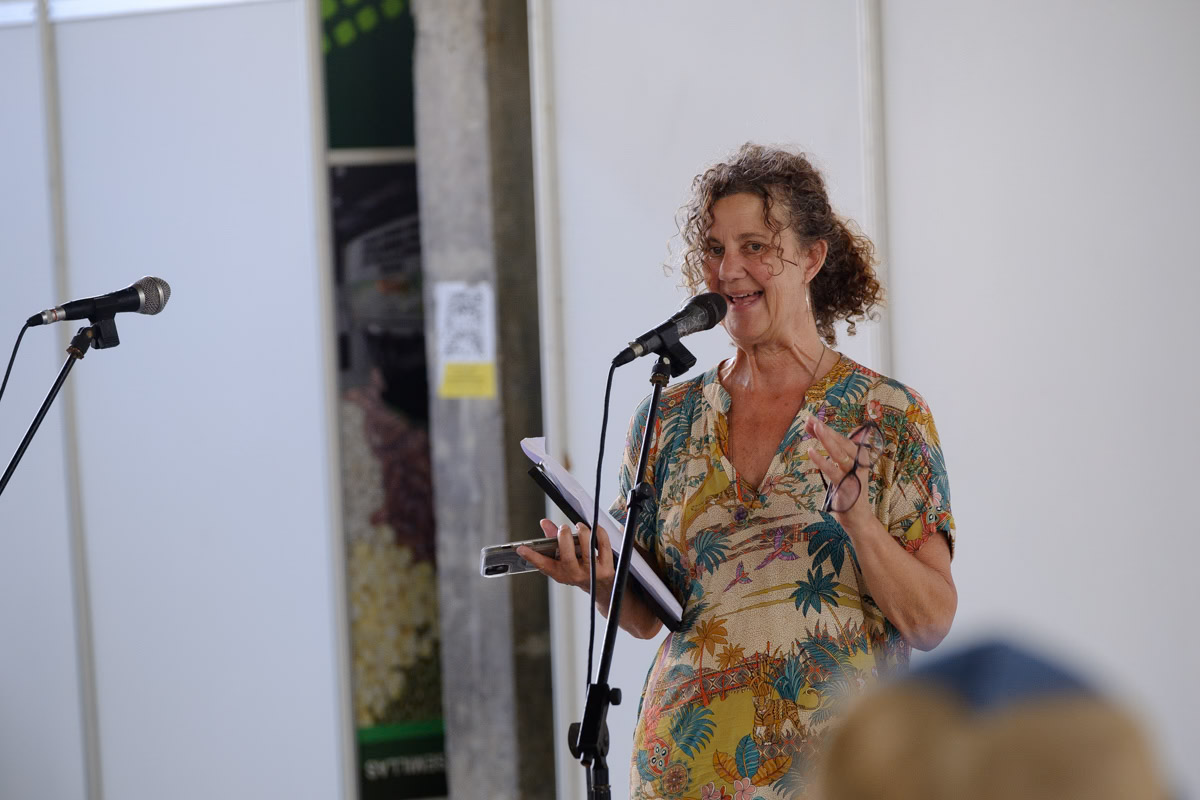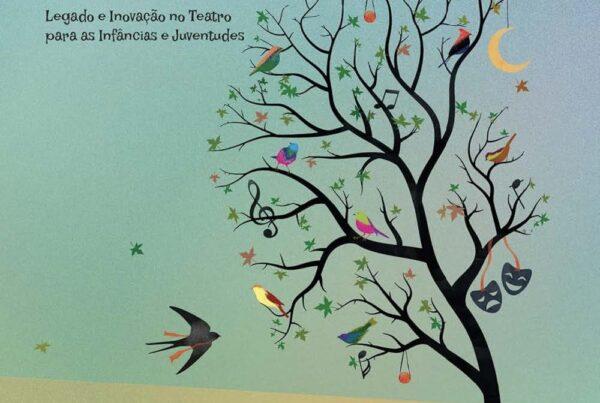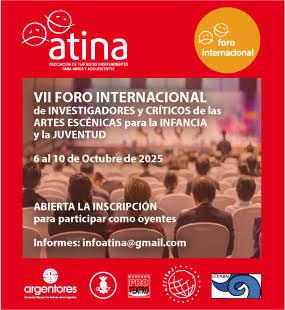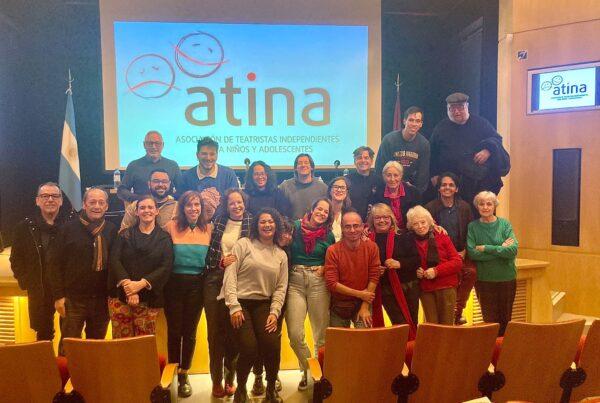Nishna digs into the history of the International Theatre for Young Audiences Research Network and the significance of this year’s conference in conversation with Manon. They also dive deep into the aspect of language and access in research while also mulling over practice as research, turning closed questions into open-ended questions and critical thinking.
Photos by Keiu Virro and François Fogel.

Listen to the audio here and read the transcript below:
Nishna Mehta (NM): What was ITYARN doing at this conference? And what is ITYARN looking for in the Congress this year?
MW: So, since ITYARN was formed in 2006, the whole mission of the network was to bring academics and scholars in Theatre for Young Audiences together to talk about, to exchange ideas, and research in Theatre for Young Audiences. And the reason for that was that there was not a whole lot of research in Theatre for Young Audiences, globally, but certainly not in one country. It wasn’t concentrated in one country. So, there were seven countries coming together or seven scholar-practitioners coming together from one country. And so we felt the need to create a global network in order to disseminate and to gather more scholarship that would, that we wouldn’t ordinarily get at, because it’s difficult. Obviously, this was for before the widespread use of the internet. So that has something to do with that, too, maybe. And our first conference was in Adelaide, in 2008. And that was very much an experiment. It’s like, are people in ASSITEJ interested in this, would they come? Would they like to hear what we have to say? And, people did come and they were interested in it, and there was a publication coming out of it. And we also realised that we were all, more or less by necessity, scholar-practitioners. Our field is so small that you cannot be just a scholar. Most of the time, people are also either directing or they are acting or they are playwriting, or they are teaching drama and often they went to scholarship after that. So since 2008, in terms of ASSITEJ, we had a conference at every World Congress and festival. I think the biggest thing that stands out, that’s an open call for all researchers, practitioners that wanted to take part in ITYARN went out every three years after 2008.
What was very different this time, was that we wanted to not stay exclusively in English. So English was the main language that we always used. But we really want to make it more, more global. So, we had Spanish, English and Portuguese. And there were also three people organising it. And so, it was myself for North America, Paulo Merisio from Brazil, and Nora Lia Sormani, from Argentina. And so, she was Spanish, Paulo was Portuguese and Spanish, and I was English. Spanish and Portuguese, according to Paulo and Nora Lia, people can understand and read each other’s papers, even if they don’t necessarily speak Portuguese or Spanish. We had accepted, I think about 56 people, not everybody could come for one reason or another. Very early on we decided not to do anything online that would indeed not be a good idea here particularly in Cuba, because we didn’t have WiFi in the venues that we were presenting in. We are very happy, that we really wanted to emphasise that we weren’t only working in English. And we actually had asked native English-speaking people who we thought whose Spanish would be good enough to present their paper in Spanish.
The ITYARN conference went very well, mainly because we were also prepared to improvise. And we did, because there were some things, you know, we have different venues, sometimes there were air conditioning, one group was in non-air-conditioned rooms, like, okay, “This is big enough”, “we can go here”, “okay, that’s fine” – last-minute really, on the spot. Somebody will be stuck in traffic, somebody didn’t know how to find a venue. So, we just managed to do everything more or less in time. And so that, that all worked out. We really would have liked to see more Cubans. And we didn’t, and there all kinds of reasons. Next time, in three years if somehow we can encourage people, local people, academics, professional people and people in theatre to, to come and listen in.
And, and I say not only academics, because already in 2009, we had a whole meeting with the Next Generation, then. And we said, “Come to this”, you know, “present here” and they said but we’re not researchers. And we said, but no, but as soon as you start thinking and writing about your practice, that’s research. And it’s interesting for us, so it’s like, you know, practical research, research, practice, practice research, it’s all the same. So, you don’t have to have an academic education. It is more like, think deeply about your own practice. Ask questions, try to answer them and if you don’t have the answers, ask the questions.
NM: It’s like the minute you ask a question you are starting, you know, research work. Right? The minute you have a question, that’s where the research begins.
MW: You know, it’s so, it’s tricky because they always say don’t ask closed questions. So, like questions that you can say yes or no to, which is sometimes difficult, right? But even if you do ask that even by accident to yourself or other people, always you can say, always end with “why?” or, “and?”, [Nishna overlapping – EXACTLY!] “so what?” The why is for me very important. So, if children don’t like a performance, it’s not a good performance. But why? I mean, do adults all like the performances that they go see? And is that automatically a criterion to make it a bad performance or a good performance? It doesn’t. You know, I go to the theatre and I may come out, like, I really, really didn’t like it but I, I may not say that it’s a bad performance, it was very well done but I didn’t like it. I really don’t want to see it again. Or maybe I should see it again and see if I do like it. But something was disturbing and disturbing is also that it’s not liking. So disturbing is not liking but that can still be a very good experience. Don’t say we have to disturb children, of course. But [chuckles]
NM: But but it is still a response. Yeah, like a performance is meant to provoke a response, whether it is happiness, sadness, anger, you know, because a lot of performances make me angry, and that does not mean that I don’t like the performance. It’s the subject of the performance and the way it is communicated in the performance that, you know, might make me angry that, “Yeah, I agree with you. But it is infuriating that something like this happens”, and it’s, it’s the basic human response that a performance brings out.
MW: Yeah, absolutely. I totally agree with that. And those are all normal feelings. It’s the same with the, as I said, you know, everybody is an academic and a practitioner. So, I direct and I do drama, drama, creative drama, teaching and learning, however you want to call it, but process oriented drama. And one of the first things that I’m saying to students just like, you know, they’re emotions, crying is also an emotion that doesn’t need to be bad. Often, you will maybe start laughing, laughing is an expression of uneasiness with something because you don’t know what else to do. That doesn’t mean it’s, it’s good. It doesn’t necessarily mean it’s happy, you know, so to make people think about these other things, I say kids do that, too. But if a kid started crying, that’s not necessarily bad in the sense of bad, it’s that they’re touched.
NM: It’s communication.
MW: It’s communication. Absolutely.
NM: You know, what you said earlier about people thinking that they’re not researchers, and for a long time, I was properly intimidated by research. And about a year ago, I was considering applying for a PhD, I spoke with Tom. And we had a very honest conversation. And I said, at heart, I am still a practitioner, but I have a lot of questions. And, and I somehow just dropped the idea of applying for a PhD, but I still, I document everything I do, or I try to find answers in different ways. And it just feels reassuring, when you say that. Because when I was doing my master’s, we had a module on practice research, and that is something that I want to hold on to. Research and Production coming together. So, as a practitioner, I have found solace in using research as a way to create theatre, and this is all it’s also something that I use with my students. So, I work with a school for children with disabilities, and we are integrating the production process in the social sciences curriculum as well. And we take them on field trips, and, you know, bring in guest speakers. And that’s research, isn’t it?
MW: It really is. In the ITYARN on board, there are people who did their PhD or people who did their MFA and worked at a university, which I am doing too. But there have also been people taking part in ITYARN activities, and are published in ITYARN publications, who do not have a formal academic degree, higher academic degree. I think that most people have some sort of like, a higher degree that in that they have training in directing and acting. And, you know, we’re all kind of like self-thinking people. I think the main thing is exactly what you said, the main thing is questioning. It’s like not saying, “Oh, I did a great job.” It’s like, why did you do a great, great job, what was so great about your job, or “I did a really bad job”, really was it so bad? But I thought this and that was pretty good. What do you think? And why do you think that’s bad? And, you know, so just this, this whole idea of why and, and probing and going deeper about that, which can be with or without research, right? You can kind of look just using your own mind.
NM: Yeah. So ultimately, research is all about inquiry and finding answers. And as we say, in Hindi, “baal ki khaal nikalna”. So “baal” is hair, and “khaal” is skin, so removing the skin of the hair, so which means to really dig deeper into something.
MW: Yeah and that is really what it is. Because and that is, you know, that’s really what critical thinking is too. People are saying, oh, critical thinking is hard, right? But no, it’s not. It’s just questioning things. And that can be very simple.
And that is why you have to say, why? How? Oh yeah? Are you sure about that?
I think for me, the heart of research has always been questioning.
—–
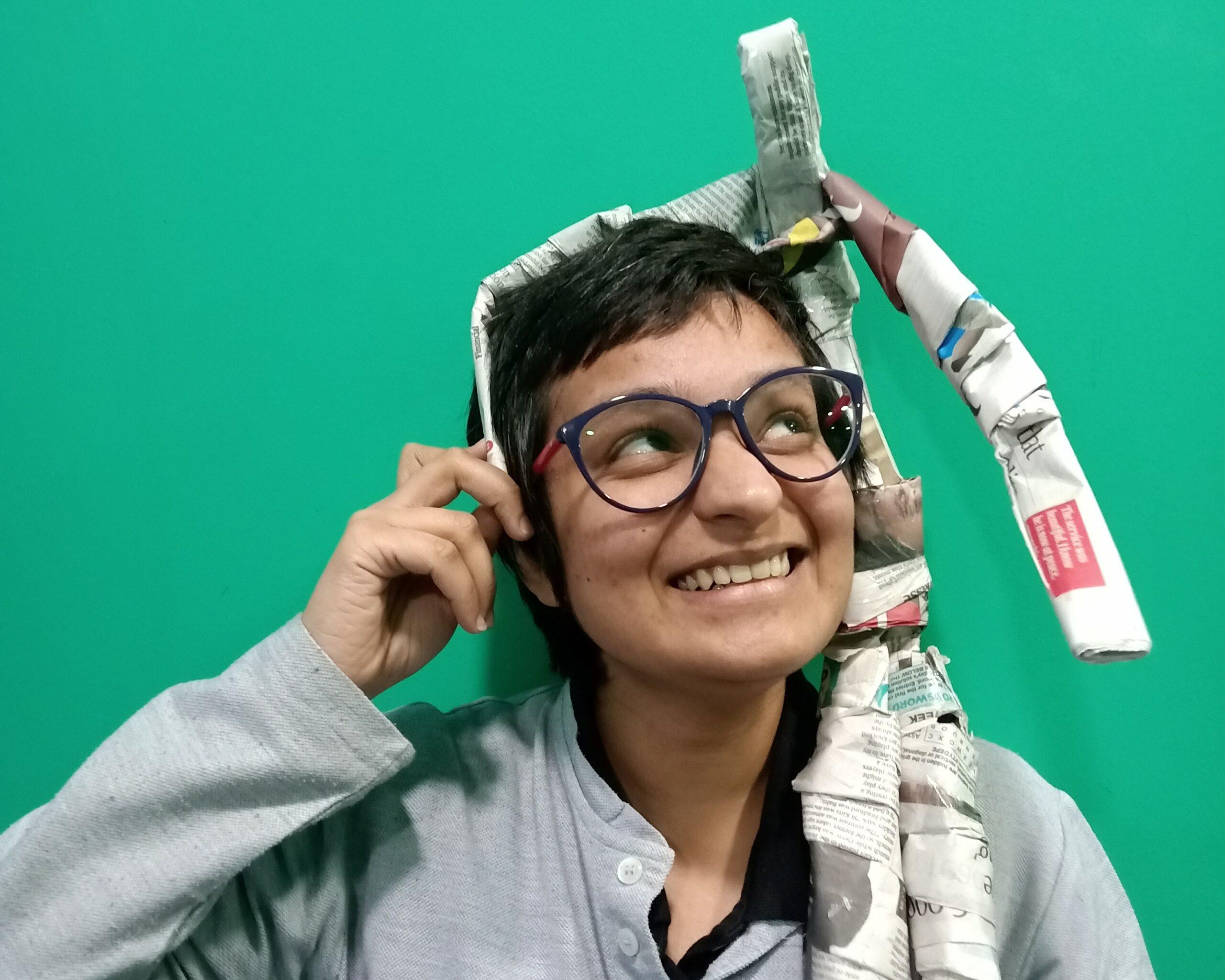
Nishna Mehta is an MA in Theatre for Young Audiences. She has been working with and for children and young people from various backgrounds and abilities in India, Singapore, England, Ireland and Germany since 2012.
Currently, she is the Lead Researcher for ASSITEJ International’s Global Advocacy Focused Research Project with a focus on Diversity in Leadership in Theatre for Young Audiences, the Chairperson of the International Inclusive Arts Network and acting Secretary of ASSITEJ India.
She wishes to share the magic and joy of theatre with young people across age groups and backgrounds throughout the world and aims to bring her local and international experiences together in order to find a ‘glocal’ identity.

